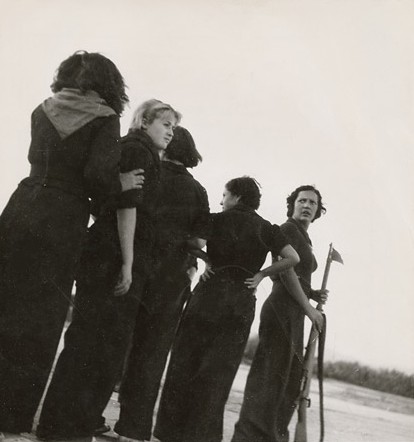Tags
biographical fiction, book review, Dennis Glover, dystopian vision, Eric Blair, George Orwell, H. G. Wells, historical fiction, Homage to Catalonia, lack of emotional depth, lack of narrative tension, Nineteen Eighty-Four, Spanish Civil War, The Road to Wigan Pier, working-class struggle
Review: The Last Man in Europe, by Dennis Glover
Overlook, 2017. 240 pp. $27
By April 1947, Eric Blair, whom the world knows as George Orwell, conceives what he believes will be the book that will fix his reputation for all time. However, at age forty-three, he’s fighting the tuberculosis that keeps him bed-ridden, so writing becomes nigh impossible. But even if you didn’t know Orwell from Adam—and didn’t read the jacket flap—you’d still know what happens. He’ll finish Nineteen Eighty-Four, which will indeed cement his reputation, but the effort will kill him.
This framework, not quite a premise, sounds almost Greek in its tragic outline, yet The Last Man in Europe, though interesting, never rises anywhere close to that level. I can’t blame Glover; he’s writing a novel with an ending too famous to be a surprise, about an author whose thinking is as relevant now as then, if not more. “Big Brother” and “doublethink” have entered the language; saying, “What they’re doing is like 1984!” evokes a police state. As a novelist, then, how do you create tension in a foregone conclusion? Answer: The journey, which could involve several questions. How does Orwell manage, despite his illness? How do his ambition and political passion lead him to ignore his doctors’ advice? What life experiences have brought him to his dystopian vision?
Glover gets partway there. He excels at the essential, dwelling on the politics, as Orwell himself would have preferred. You understand how he thinks, how he’s always trying to observe, the political atmosphere that shapes him, and how he reacts to whatever he finds false or hypocritical. Glover’s prose, like Orwell’s, is absolutely lucid, sharp, and direct, as in this passage about a premonition, in July 1938, of coming war:
. . . it was like a physical presence in his life already, pressing down on his chest, with its bombing planes and air-raid sirens, its cratered streets and smashed windows, and its loudspeakers bellowing that our troops had taken a hundred thousand prisoners on some front that no one had ever heard of. And after that? Dictatorship, just like there would be in Spain, when the fascist noose was finally pulled tight. Yes, it was all going to go—all those things they were now taking for granted: the England of Dickens and Swift, the bum-kissers with their frivolous novels, strong tea and heavy scones, thrushes singing in the woods and dace swimming in their pools.
What an adventurer Orwell is, and not just as a writer intent on verbal and intellectual provocation. He descends into a coal mine, en route to writing The Road to Wigan Pier, his description of depression-era, working-class struggles, and feels self-conscious as a decidedly middle-class person. He enlists in the war against Franco and is nearly killed twice, once by his own side, events that inform Homage to Catalonia.

What Orwell conveyed about the Spanish Civil War in words, photographers like Gerda Taro did in pictures, as with this 1936 image of militiawomen in training. Unlike Orwell, however, Taro did not survive the war (courtesy https://www.nytimes.com/slideshow/2007/09/21/arts/20070922_TARO_SLIDESHOW_11.html, via Wikimedia Commons; public domain in the U.S.)
Along the way, Glover tells you how his protagonist has gathered the bits and pieces that wind up in Nineteen Eighty-Four. Buying black-market razor blades, submitting to excruciating medical treatments, staying in a farmhouse overrun by rats—all those scenes, and more, find expression in the masterpiece, literally or in essence. Though Glover handles many of these clues in subtle fashion, sometimes the treasure hunt feels like wink-wink, nudge-nudge, inside jokes. Even so, I still like the dinner with an aging, cantankerous H. G. Wells, or a school classroom where the adolescent Eric Blair has a back-and-forth with his teacher, Aldous Huxley, about what the most crushing type of dictatorship would look like. (From the earliest age, Orwell seems to come in contact with everybody in British literary circles.)
But I still want to know who Eric Blair is when he’s not thinking or writing politics, and Glover doesn’t show me. Since we know that Orwell can’t die in Spain, for instance, the plot, if there is one, consists of episodes that exist to provide political subject matter. Much as I admire Nineteen Eighty-Four and many of his other works, I want to see the man behind them, not just the political man. How does he really feel in his “open marriage” when his wife sleeps with someone else? It zips by in one sentence, as does guilt over his own love affairs. Glover gives us mostly surfaces, and maybe Orwell didn’t want anyone to probe him any deeper. But if so, why? And if you probed anyway, what would you find? That’s what’s missing, here.
The mask does slip toward the end, as Orwell races against his mortality, physical limitations, and his publisher’s prodding. I glimpse the yearning for fame and money that has largely eluded him (Animal Farm excepted), and the frustration that so little time remains, leaving no room for error or hesitation.
Some Orwell enthusiasts will be delighted with an (almost) purely political depiction and enjoy the revelation of sources for his magnum opus. But from this polished treatment of one of the most polished writers of the twentieth century, I come away unsatisfied.
Disclaimer: I obtained my reading copy of this book from the public library.
